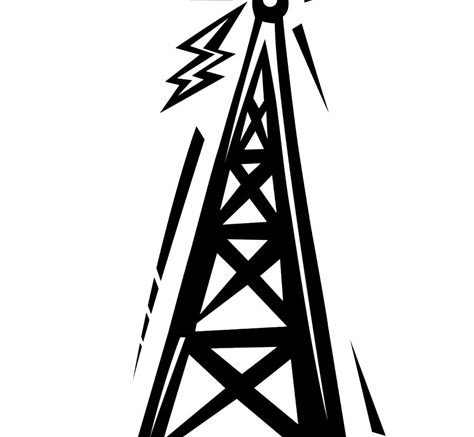The current attempts by the British government to restrict what people say online via the Digital Harms Bill are I’m afraid nothing new. I would go so far as to say that UK Government’s of many different political shades over centuries have been terrified of allowing the average British subject to have their views expressed or to speak to one another.
This horror at the thought of the vox populi by those who rule over us has taken many different forms. It has been expressed in subtle and not so subtle controls over the printed press in the form of laws restricting what newspapers can publish, a broadcasting environment dominated for decades by a state broadcaster and severe controls on what independent broadcasters, when they were finally licenced in the period between the late 1950’s and mid 1970’s can do. The UK government even resisted calls for the introduction of legal CB radio for a number of years (from the mid 1970’s to 1981) so great was the fear that people would talk to one another in an environment that was not controlled either directly or indirectly by the State.
Whilst researching some information about the shortwave bands and in car shortwave receivers (answer there are few so I will be installing an old Sangean 909 on a pull out tray) because I want an alternative to the BBC or mostly moronical independent local radio available in the car on long journeys, I came across video with BBC denunciation of pirate radio from the 1980’s. The video comes from an excellent channel called Radprog on YouTube which carries a lot of archived media reports about radio and about clandestine radio in particular.
The video below shows how the BBC and what was then the Independent Broadcasting Authority hated the small pirate community stations even though these small pirates were providing their customers with a service that they were not getting from either the BBC or the independent stations. Of course the argument that the pirates were dodging copyright fees that the BBC makes in this video are correct, however many of the BBC’s technical arguments that they made at the time are pure bunk. But in my view, the biggest problem that the BBC and other licensed broadcasters and indeed the government had, was that the pirates were not under the control of government. They could say what they wanted and play what they wanted and that frightened the government. Even that titan of the political Left, Anthony Wedgewood Benn when Postmaster General, cracked down on offshore pirates in the 1960’s with the Marine Offences Act which shows that a dislike of independent and uncontrolled broadcasting was not confined to one particular current.
The video and the government’s fight against pirate radio from the 1960’s onwards shows that successive governments have been extremely hostile to the idea of British subjects speaking to a large audience of other Britons without some degree of government control. Of course I’m not advocating that anyone get involved in unlicensed broadcasting, that would be illegal, but I believe that the historical crackdown on clandestine broadcasting back in the day was less to do with technical and financial matters and more to do with a fear on the part of government about what people might say to one another over the airwaves.
Things have changed a lot since the mid 1980’s when the above video was made. Online broadcasting has given a lot of people the ability to voice their views and ability that was not available in the past. We also have DAB and stations like Talk Radio which provide some alternative to the big broadcasters but which are still licensed and therefore controlled by government. We also have Community Radio, something long fought for and planned for, but all too often the licenses for these stations have gone to left wing arty types such as those behind London’s Resonance FM or to identity politics groups such as Muslims (who have all too often misbehaved – see links below), many other groups that could be broadcasting are not allowed to. However I believe that the motivation for a government crackdown on things like podcasting, online anonymity and other online content, especially political content, comes from a very similar place to the government’s motivation to crack down on pirate radio in the past, a desire to control where people speak, what they speak and who they speak to.
Related articles
Islamic radio station misbehaviour
Jihad promoting station
https://www.fahrenheit211.net/2017/08/04/more-on-the-jihad-promoting-imam-fm/
Islamic station management tell porkie pies
Islamic community radio station broadcasts Taliban preacher
Ofcom finally shuts down Islamic radio station that broadcast Al Qaida preacher
Muslim community radio station broadcast incitement to violence against non Muslims
Islamic community radio station caught promoting Islamic medical quackery
Possible politically correct frequency policing in London by Ofcom




In 70s I used to listen to Radio Luxembourg (LW 208?) in bed with earphone. Never found anything of interest on SW
The ‘War’ still going on today:
– FSU vs Ofcom : Coronavirus ‘guidelines’ (essentially same as Facebook, Google & Youtube etc)
Started in April. Latest case 9 Dec – Yet again Judge refused judicial review
It’s same as USA Judges refusing to hear vote fraud cases
PS Talk Radio
What is going on with talkRadio and youtube?
Last week channel silent, back on Tuesday – a one week ban like OAN?
Thursday and Friday dead again
Are they being suspended, shadow banned, de-listed even on channel?
Why have they not gone public? Moved to Bitchute, Vimeo, Alt Censored….?
Where are they?
I also used to listen to ‘Big L’ but later on I preferred the music format of Laser 558 on MW and Atlantic 252 on LW. During the Cold War I used Shortwave a lot to compare the messages being put out on political matters by each nation or bloc. Even back then it was interesting to note that there were stories that Radio Moscow or Radio Tirana or some other station covered which the BBC did not. It was extremely shortsighted of the Western nations to abandon SW broadcasting on the grounds of costs as it’s just left the band clear for Radio China International the mouthpiece of the CCP. It was in my view especially shortsighted of Israel to abandon the SW service of Kol Israel as it could have reached the individual citizens of close and far neighbours in order to have their neighbour’s citizens hear Israel’s point of view, which too often they do not. There are still quite a few legit broadcasters on SW but there are also a number of clandestine music radio stations out there as well, which seem interesting. The radio I’m installing in the car has a frequency coverage of 150khz right up to 30Mhz and is capable of both AM and SSB so I’ll be well able to listen to any broadcast AM station local or international as well as the very interesting clandestines who use SSB although music quality is liable to be bad in that mode with only a 3 to 5khz bandwidth available but it would still be better than having to listen to the BBC propaganda channels.
Completely agree that the info war still goes on, just on different battleground.
Bad news about the FSU getting their judicial review of Ofcom turned down. Looking at history judges have often sided with the King or the State, it’s the occasional ‘eureka’ judgement in favour of liberty not the generality of law that have made the difference. Cases like the 1670 Bushel’s case which gave juries freedom from oppression by Judges and the recent Scottow case that ruled that Ms Scottow being ‘insulting and abusive’ to the trans activist Stephanie Hayden are not crimes.
The problem with Talk Radio is that they operate under the auspices of Ofcom and under their control however that doesn’t explain the Big Tech censorship. The problem with the mindset of those in corporate media such as Talk Radio is that the see no other option outside of the big tech platforms, it’s shortsighted that there it is. Personally I believe that there would be a market for an internet broadcaster or even a licensed shortwave broadcaster working from the USA with US management (to give FA protections) but aiming programming at the UK, it would be a major blow to the censorship culture that exists in the UK, not just over the issue of Covid, but of the other matters that afflict and affect the UK.
Fail of the year?
Login – fail before they start. Stupid, stupid, stupid